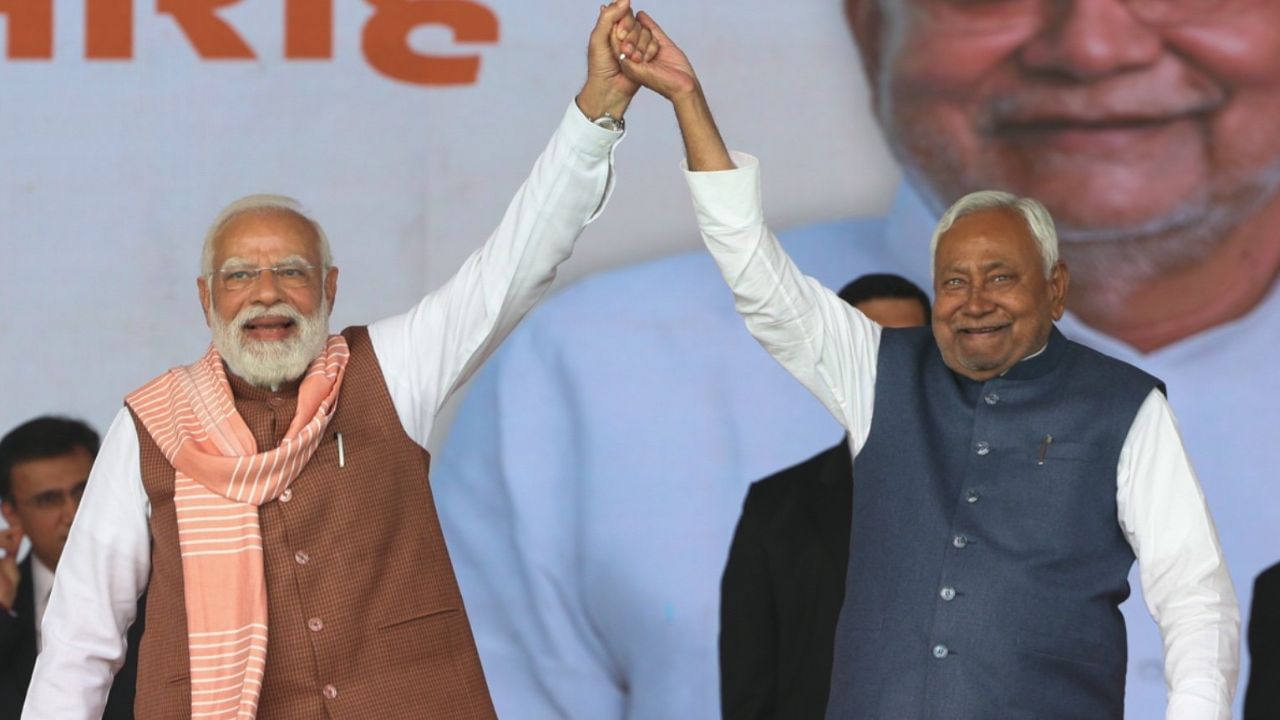There are elections that change governments. And then there are elections that change the grammar of politics itself. The 2025 Bihar verdict belongs squarely to the second category.
Beneath the saffron sweep, beneath the shattered caste equations, beneath the ruins of the Mahagathbandhan’s thrashing defeat, two constituencies — women and youth — silently rewrote Bihar’s political gravity. In the story of Bihar’s new political core, they became the decisive anchors of a mandate that stunned pundits.
Women’s mandate
Women have emerged as the most decisive and emotionally anchored political constituency in Bihar.
In this election, they did not just vote — they surged. Women’s turnout soared to 71.6 per cent, nearly ten points higher than men. For the first time, they outvoted men not out of deference but conviction. What powered this surge was not identity, but impact — policy that touched their lives.
The NDA’s pre-poll strategy placed women at the centre. The Mukhyamantri Mahila Rojgar Yojana, offering Rs 10,000 to women entrepreneurs, was pushed to the forefront. The promise of the dashazari scheme was not merely a slogan, it became a tangible aspiration.
Alongside came a transformative assurance — free electricity up to 125 units for all households. For countless women managing fragile monthly budgets, this was not charity — it was relief, respect, and recognition.
What some political observers once dismissed as Nitish Kumar’s “soft politics” has crystallised in 2025 into Bihar’s most formidable electoral engine.
Nitish Kumar’s women-focused welfare architecture — reinforced by Prime Minister Narendra Modi’s national appeal — has forged a new political grammar. Schemes like Pradhan Mantri Ujjwala Yojana, Chief Minister Nari Shakti Yojana, Mukhyamantri Mahila Rojgar Yojana, and Mukhyamantri Kanya Utthan Yojana did not remain mere policy announcements trapped in file notings. They travelled to kitchens, self-help groups, schools, anganwadis — into the very bloodstream of Bihar’s domestic economy.
Across thousands of households, these interventions have grown into everyday tools of empowerment. They accumulated not as welfare doles, but as identity-defining forces.
Bihar’s women now see themselves not as passive recipients of governance, but as active partners. Their vote is no longer a token favour to a candidate. It is a referendum on who honours their aspirations and safeguards their dignity.
This is why women voted with such clarity. They no longer act as caste subjects bound by old feudal arithmetic. They vote as stakeholders of development, guardians of household stability, and architects of a safer State. They chose continuity because continuity ensured predictability and predictability in turn ensured dignity.
In a political landscape still obsessed with caste equations, it was Bihar’s women who quietly redrew the script. Their mandate spoke in whispers, yet its message shook the State.
Youth’s mandate
If women were the heartbeat of this verdict, the youth were its thunderous pulse. Bihar’s young voters have broken away from the old caste-bound politics that once shaped the State. They have witnessed new roads, bridges, and digital connectivity steadily transforming Bihar, and they now see their home as a place where ambition can finally rise. Rejecting rigid identities, they gravitated toward a politics rooted in development, dignity, and inclusion.
For them, Lalu Prasad Yadav’s jungle raj is not a lived memory but a cautionary tale whispered by their parents, grandparents, and neighbours. So when the NDA projected stability, mobility, and a credible horizon of hope — a world far removed from those unsettling stories — the contrast became sharp and unmistakable.
For this generation, the election was not just about choosing who should govern — it was about declaring, with unmistakable resolve, who must never return. As the Mahagathbandhan clung to its old and exhausted playbook, the youth delivered a verdict that echoed with unambiguous clarity.
New political gravity
In the larger arithmetic of power, a new equation called MY has taken shape — not caste-based, but aspiration-based. The old MY (Muslim–Yadav) formula that long powered the RJD’s vote bank has been quietly replaced by a new MY (Mahila–Yuva), which catapulted the NDA to its massive victory.
As Nitish Kumar has taken oath as Chief Minister for the 10th time, the message from Bihar’s women and youth is unmistakable. They are no longer passive beneficiaries of governance, they are its fiercest auditors. From LPG cylinders to self-help groups, from skill centres to scholarships, they seek outcomes, not optics.
(The writer is a senior multimedia journalist)
